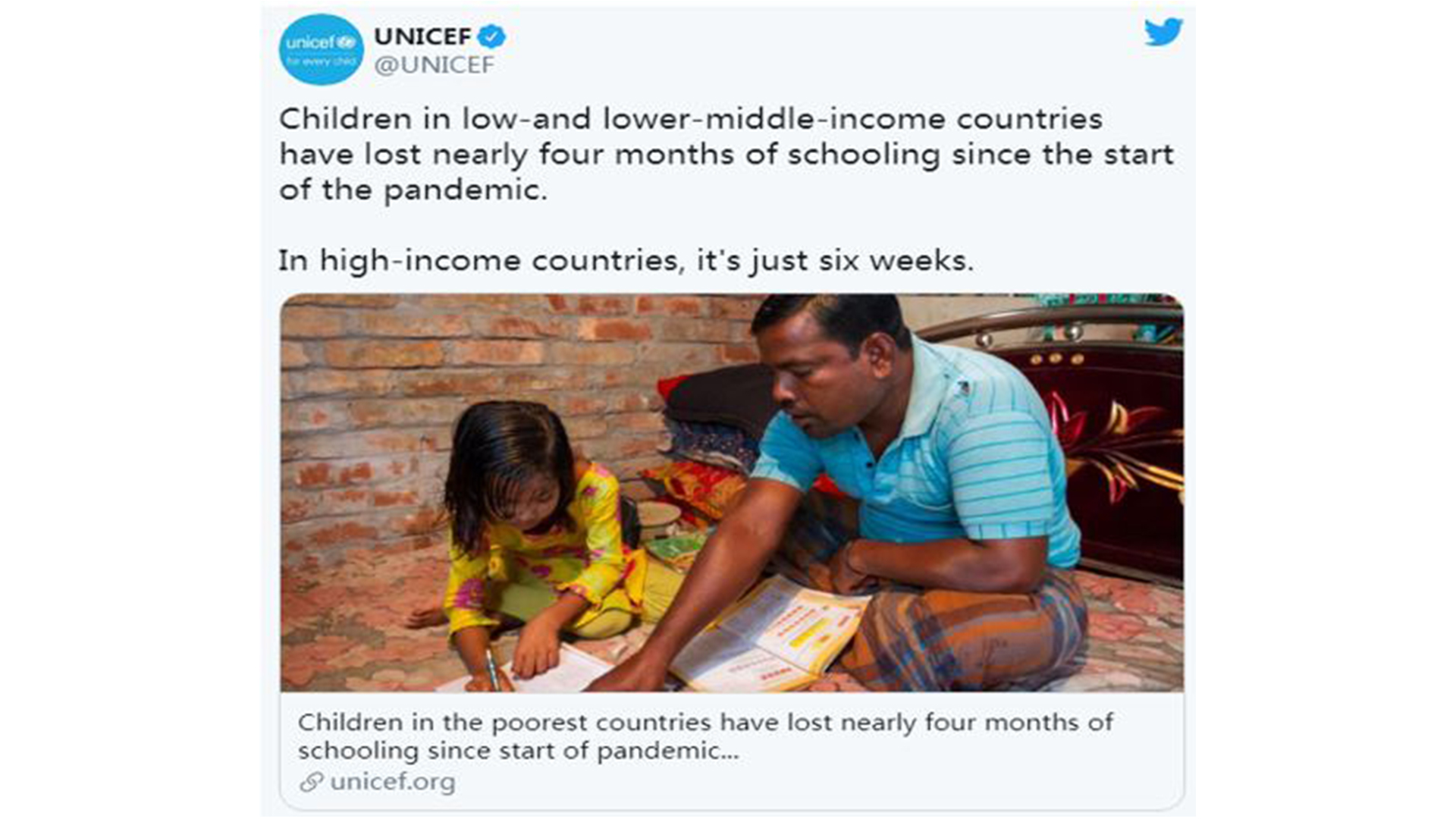4 years ago

The COVID-19 pandemic has robbed children in the poorest countries of nearly 4 months of schooling, compared to 6 weeks for their counterparts in high income countries, according to a joint report released on Thursday by the UN Educational, Scientific and Cultural Organization (UNESCO), the UN Children's Fund (UNICEF) and the World Bank.
The study is based on findings from surveys on "national education responses to COVID-19 including lost learning; remote learning support for students, parents and teachers; school reopening plans; health protocols; and financing," which were carried out in nearly 150 countries between June and October.
The new report found that students in low- and lower-middle-income countries were least likely to access remote learning and to be monitored on their learning loss.
They also were most likely to experience delays in school openings and to attend schools with inadequate resources to ensure safe operations.
While schools have fully or partially reopened in more than two-thirds of the countries surveyed, one in four have missed their planned reopening date or have not yet set a date for classes to commence, and most of them are in low and lower middle income countries, the report said.
It also revealed that of 79 countries which responded to questions related to financing, nearly 20 percent have either already experienced or anticipate decreases to their country's education budget for the current or next fiscal year, compared to nearly 40 percent among low- and lower-middle-income countries.
Additionally, half of respondents in low-income countries said they do not have adequate funds for COVID-19 safety measures such as hand washing facilities or protective equipment for students and teachers, compared to 5 percent of high-income countries.
According to the report, nearly all countries have included remote learning in their education response, namely via online platforms, television and radio programs, and take-home packages.
Most countries, or nine out of 10, have facilitated access to online learning, usually through mobile phones or by offering internet service at subsidized or no cost, though coverage was "extremely varied," the report said.
It also showed that parents in six out of 10 countries also received materials to guide them in home-based learning, while four in 10 countries provided psycho-social counselling to children and caregivers during school closures. While these efforts were more common in high-income countries and in areas where resources were already available.